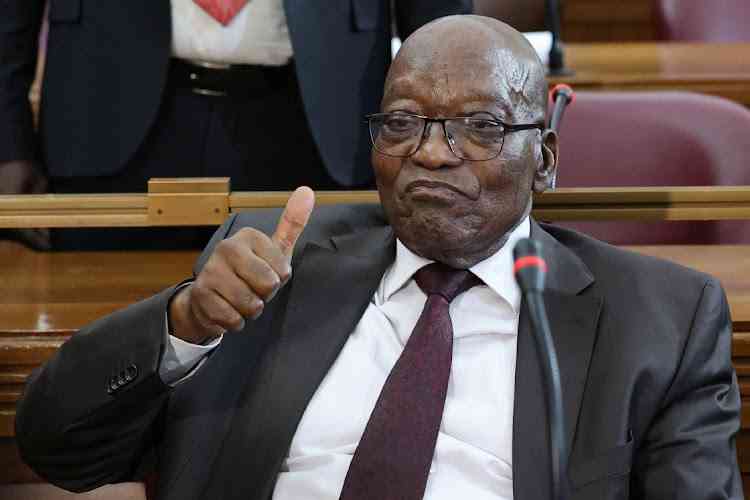
In a few months time, Zimbabwe is going to hold the much-anticipated harmonised elections. The forthcoming elections will be the first since the resignation of Robert Mugabe as President and the passing on of former MDCT leader Morgan Tsvangirai.
By Admire Mare
Unlike previous elections, the 2018 plebiscite has been presented as a contest between “old”and the “new” guard as well as the “past” and the “future”, depending on the way the front-runners have been constructed by the media and opinion makers.
These elections also take place at a time when digital campaigning has become normalised in contemporary Zimbabwean political landscape. A re-invented Zanu PF has launched the #EDhasMyVote campaign, while the opposition parties, especially the MDC Alliance has been vibrant on WhatsApp, Twitter and Facebook.
The country has also witnessed very savvy digital campaigns by female candidates like Fadzai Mahere, Kudzai Mubaiwa, Linda Sibanyoni and most candidates under the People’s Own Voice (POVO) movement.
This is just the tip of the iceberg in terms of how the country has progressed with regards to the appropriation of digital campaigns. There is need for a caveat though here. The Zimbabwean electorate remains very much ruralised and “unconnected”, although smartphone penetration has increased in the last few years.
Because of the digital divide and inequalities, most campaigns will continue to happen at the level of the physical sphere (via face-to-face, door-to-door and rallies). This is not to dispute the role of virtual campaigns, especially, in a country which stands to benefit a lot from the demographic and Diaspora dividends that is if those domiciled outside the country are eventually allowed to vote.
The use of Facebook live, WhatsApp and Twitter for mobilisation, fundraising and sharing information in real time has also become very pronounced in the post-Mugabe context. Be that as it may, data remains very expensive, with most people relying on social media internet (partial access to the internet) to participate in political and social debates.
- Chamisa under fire over US$120K donation
- Mavhunga puts DeMbare into Chibuku quarterfinals
- Pension funds bet on Cabora Bassa oilfields
- Councils defy govt fire tender directive
Keep Reading
Young people — who are generally presented as “game changers” or part of the “youth-quake” discourse — are increasingly relying on social media for news consumption and political identity construction. Some of them lack the digital literacies required to sift “fake” or “junk” from “real” news, thereby, making them susceptible to manipulation and disinformation.
Recent statistics indicate that 60% of the registered voters are from the youth category, which makes digital campaigning an important ingredient in the toolbox of modern political parties and candidates.
Equally interesting about the forthcoming elections in Zimbabwe is the fact that they happen in the wake of the revelations about Cambridge Analytica — the big data firm that misused Facebook data to target voters with propaganda.
The firm has also provided political consultancy services in Nigeria and Kenya. Parties and individual candidates have hired firms like Cambridge Analytica to map voter constituencies, tailor political messaging and shape electoral outcomes through data-driven profiling.
This raises fundamental questions about whether the Zimbabwean elections will not be contaminated by the toxic propaganda and extremist views planted on social media platforms.
Are we safe from disinformation campaigns? How about the use of cyber troops to manipulate public opinion? How can we ring-fence our elections from fake news? Is it possible to ensure that social media becomes a force for credible and peaceful elections in Zimbabwe? What are the chances that it can be harnessed to sow seeds of disunity and foster a culture of intolerance and hate speech?
These are genuine concerns for democracy-loving citizens of Zimbabwe. Recent elections have shown us that social media can be used to undermine democracy through broadcasting conspiracy theories, fake news and disinformation campaigns. The Zimbabwe Electoral Commission, political parties, candidates, observers and the electorate cannot afford to take things at face value.
Electoral processes like other facets of modern societies have become data-intensive, which suggests that understanding voters’ political preferences, networking nodes and other social demographic factors are now central to both permanent and temporary digital campaigns.
In fact, data drips everywhere, because of our everyday online practices. We leave data traces or footprints whenever we post something, like something, and interact with friends. This kind of data can be used to predict our behaviour, values and interests through machine learning and artificial intelligence.
The collection of this type of data by internet intermediaries in order to assemble detailed customer profiles to tailor products to specific segments of the population is not a new phenomenon. What has changed with the growth of analytic tools and machine learning capabilities is the use of some of these techniques to build detailed psychological profiles about voters. In some cases, this data has been leveraged to deliver political advertisements and propaganda.
Given what has happened in Britain and the United States of America, it is, therefore, not far-fetched to anticipate the likelihood of political parties and candidates hiring the services of data analysts and firms to hack our democratic processes.
This is why the Facebook scandal must not be treated as a “distant” happening. It affects us as much as it did to the Britons and Americans. Gone are the days where mainstream media was the only game in town, we live in an era where the hybrid media system feeds into our electoral processes in complex and multiple, but equally enriching ways.
Whilst we should continue to be concerned about the hacking of the Biometric Voter Registration (BVR) servers, there is urgent need to look at the credibility and fairness of the election at the level of access to social media algorithms and the ability to game its algorithms.
In today’s digital environment, elections are fought at various levels. Because of the digitized nature of campaigns and voter registration systems, data analysts are of paramount importance.
If there is anything we must have learnt from the Facebook privacy fiasco, it is the fact that our personal data is not safe at the hands of global social media companies. It is also not safe in the hands of partisan electoral management bodies. This trove of information can easily be shared and sold to third parties with ulterior motives. Therefore, calls for the independence and transparency of Zec are not misplaced. They must be understood within the wider context of ensuring that voter registration data is safe from arbitrary manipulation by interested parties.
As part of the media reforms, civil society organisations must urge the “new” regime to implement progressive cyber-crime and computer laws as well as data protection laws, which are anchored in necessary and proportionate principles. Data protection laws essential for the regulation of data collection, analysis and storage by various agencies and private companies.
Admire Mare is a senior lecturer at the department of communication, Namibia University of Science and Technology. He writes here in his personal capacity











